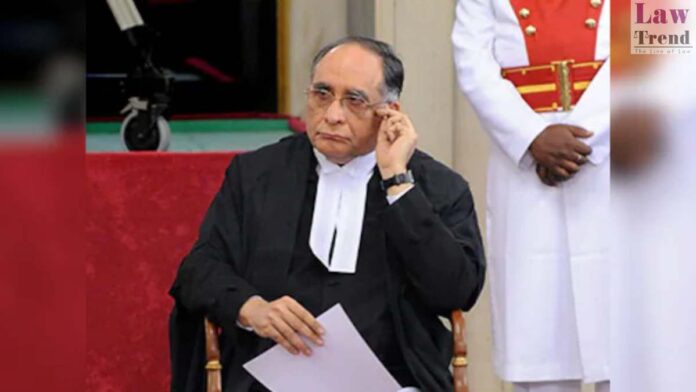In a remarkable tale of determination and resilience, Justice Sarosh Homi Kapadia’s journey from a peon to the 16th Chief Justice of India (CJI) stands as a testament to the power of dreams and the relentless pursuit of them, regardless of one’s humble beginnings.
Born in Mumbai just six weeks after India’s independence in September 1947, Kapadia was the first CJI born in post-independence India. He began his career in the most modest of circumstances, initially working as a peon, then progressing to a clerk, while concurrently studying law. His father, raised in an orphanage, and his mother, a homemaker, managed their lives with meager means, instilling in young Sarosh a resolve to forge his own path.
Justice Kapadia’s academic pursuit led him to the Government Law College, Mumbai. From his early days as a fourth-grade employee, he eventually became a law clerk in a lawyer’s office in Mumbai, which set the stage for his illustrious legal career. He was deeply influenced by Feroze Damania, a revered labor lawyer, under whom he honed his legal acumen.
Despite his challenging start, Kapadia’s legal prowess saw him rise through the ranks, becoming a standing judge at the Bombay High Court on March 23, 1993. His journey didn’t stop there; he ascended to become the Chief Justice of the Uttarakhand High Court in 2003, and by December 18, 2003, he was appointed as a judge of the Supreme Court of India. His ultimate achievement came on May 12, 2010, when he was sworn in as the Chief Justice of India by then-President Pratibha Patil.
Kapadia’s tenure as CJI was marked by several landmark decisions, but his journey was never about seeking the spotlight. He famously refused an invitation to represent India at the Commonwealth Law Conference in Hyderabad because it coincided with his duty day at the Supreme Court. On his first day as CJI, he disposed of 39 cases within half an hour, reflecting his work ethic and dedication.
An interesting facet of his life was his deep interest in Eastern philosophies, frequenting Belur Math in Kolkata and studying the works of Ramakrishna and Swami Vivekananda. He was also known for his austere lifestyle, often bringing a small bag of roasted chickpeas for lunch during his initial years at the Bombay High Court.
Also Read
Justice Kapadia’s life was not just a journey of personal achievement but also a beacon of hope for many who dare to dream big despite the odds. His story remains a compelling narrative of how perseverance, integrity, and a commitment to justice can elevate one from the humblest beginnings to the highest judicial office in India.




